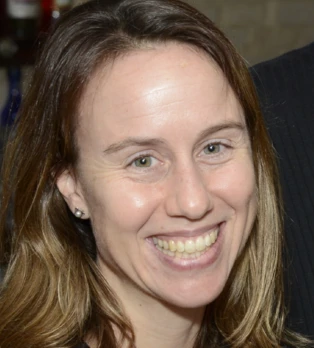About "Notes From the Field": With this occasional feature, we let World Bank professionals who are conducting interesting trade-related projects around the globe explain some of the challenges and triumphs of their day-to-day work. The views expressed here are personal and should not be attributed to the World Bank. All interviews have been edited for clarity. The interview below was conducted with Ian Gillson, a Senior Trade Economist in the World Bank’s Poverty Reduction and Economic Management (PREM) network. Before coming to the World Bank’s headquarters in Washington, D.C., Mr. Gillson worked in Malawi and the United Kingdom on issues surrounding preferential trade between developed and developing countries, trade-related taxation systems, trade in services and agricultural trade. He spoke with us about his work managing a World Bank trust fund that supports trade-related assistance to poor countries around the globe.
The interview below was conducted with Ian Gillson, a Senior Trade Economist in the World Bank’s Poverty Reduction and Economic Management (PREM) network. Before coming to the World Bank’s headquarters in Washington, D.C., Mr. Gillson worked in Malawi and the United Kingdom on issues surrounding preferential trade between developed and developing countries, trade-related taxation systems, trade in services and agricultural trade. He spoke with us about his work managing a World Bank trust fund that supports trade-related assistance to poor countries around the globe.
The Trade Post: Tell me a little bit about your background and how you became interested in trade.
Mr. Gillson: I have always been interested in trade since doing my undergraduate degree at Nottingham University in the early 90s. What attracted me back then was what seemed like a wealth of new trade data (then stored on CDs) that seemed largely unexplored. Never had I seen such large datasets to play with in economics. I then went to the College of Europe in Bruges to study for my masters. That's when I became interested in trade and development and, particularly, the political economy of trade to help explain why developing countries still face trade barriers in developed country markets. I went back to Nottingham to do my PhD in economics, critiquing the EU's GSP (Generalised Scheme of Preferences) from a political economy perspective and then after that joined the ODI (Overseas Development Institute) Fellowship Scheme, where I was sent to Malawi for two years to work with the Ministry of Finance. During that time I helped to implement Malawi's Value-Added Tax and also processed requests for import duty waivers. I then went to work in London as a Research Fellow for the ODI. There I worked on services trade and agricultural trade before joining the Bank in 2005 as a Young Professional. I first worked in the Gender and Development Unit, where I focused on trade/gender linkages, before joining the Africa Region office, where I worked on trade for Southern African countries.
The Trade Post: You look after one of the largest trust funds supporting the Bank’s trade work. Tell me about it. How much money does it hold? Who are the recipients? Who are the contributors?
Mr. Gillson: The Multi-Donor Trust Fund for Trade and Development 2 (MDTF-TD2) is a $30 million trust that supports analytical trade work at the Bank and will be distributed over three years. It supports trade work undertaken by the Bank's various regional departments and central units that respond to client demand for trade-related assistance, as well as analysis of issues in anticipation of future demand and the provision of public goods (global analysis and advocacy). The contributors to the trust fund are the UK's Department for International Development, Swedish International Development Cooperation Agency, Switzerland State Secretariat for Economic Affairs and the Netherlands Ministry of Foreign Affairs.
The Trade Post: How is a trust fund, in general, different from other types of Bank financing?
Mr. Gillson: A trust fund is a financing arrangement set up to accept contributions from one or more donors to be held and disbursed or transferred by the World Bank as trustee in accordance with agreed terms. These external contributions are additional to the Bank's own resources that it uses to fund most of its work.
The Trade Post: What types of work does this trust fund support?
Mr. Gillson: The trust fund supports analytical trade work across the World Bank that fall under the four pillars of the World Bank's Trade Strategy, namely: i) trade competitiveness and diversification; ii) trade facilitation, transport logistics and trade finance; iii) support for market access and international trade cooperation; and, iv) managing shocks and promoting greater inclusion.
Specific types of activities that can be supported include:
a) Policy analysis and diagnostics to support country programs
b) Technical assistance
c) Research
d) Capacity building and training at the country level
e) Specific data collection/surveys and development of analytical tools
f) National/regional stakeholder engagement (e.g. conferences and workshops)
g) Knowledge management and dissemination
The Trade Post: Can you give an example of work that has been funded by the trust fund?
Mr. Gillson: The trust fund has been supporting a program of analytical work and advocacy on trade and regional integration in the Africa region with a special focus on trade in food staples and trade-gender linkages. An important objective has been to support countries to pursue deeper regional integration in Africa in the context of the commitment to boost intra-African trade made at the 2012 African Union Summit. The grant has financed the preparation of policy notes as well as seminars and other events to disseminate the key messages on trade and regional integration. It is also supporting a broad-based dialogue on appropriate policy reforms with stakeholders in Africa as well as informing Bank staff and those in other international and donor organizations on the importance of regional trade policy reforms. Specific activities include: (i) dissemination of the report on regional trade in food staples (Africa Can Help Feed Africa) and dialogue with stakeholders on how to reduce barriers to food staples trade along the whole of the value chain; (ii) dissemination of a book on Pathways to African Export Sustainability and dialogue on pro-active measures that governments can take to increase export survival rates; (iii) preparation and dissemination of a new volume on the challenges and opportunities facing women traders in Africa (working title: Women and Trade in Africa: Realizing the Potential).
The Trade Post: How are decisions made regarding funding? What type of expenses can be covered?
Mr. Gillson: The decisions are made internally. The World Bank's Trade Council (a group of Bank senior managers) decides on the allocation of resources of the MDTF-TD2 to the regional and other operational units. It also reviews, provides feedback and approves work programs receiving funding under the trust fund.
Work programs are developed every year by the Bank's regional and other operational units that work on trade. These programs indicate those broad areas of the Trade Strategy that are priorities for their countries, and outline the types of projects that are envisaged to be carried out under them. Precise activities are then defined at the discretion of management in each of the regional and central units receiving funding.
The following expenses can be covered:
a. Staff costs (with limits)
b. Consultants
c. Travel expenses
d. Consulting services provided by firms
e. Equipment rental
f. Associated overheads (e.g. telephone, fax, internet connection expenses during travel; telecommunications for learning events etc.),
g. Media and workshop expenses
The Trade Post: How do you interact with the donors? What are they interested in?
A consultative group has been established for the purposes of reporting progress and taking stock for the donors. It meets annually. It receives the work programs of the regional units and other World Bank operational units receiving funding from the MDTF-TD2, as well as annual reports on the outputs and outcomes. Donors are primarily interested in knowing that activities supported by the trust fund are achieving impact and real results on the ground.
The Trade Post: How can teams within the World Bank access this funding and find out more about resources for trade work that may be available to them?
Mr. Gillson: Each regional department and operational unit working on trade has appointed a Trade Coordinator who administers a share of the trust fund. These coordinators can provide more information on what resources are available to Bank teams as well as any application procedures.
The Trade Post: How can countries seeking trade-related assistance better position themselves to benefit from the trust fund?
Mr. Gillson: Governments should communicate requests for trade-related support to their World Bank country office.


Join the Conversation